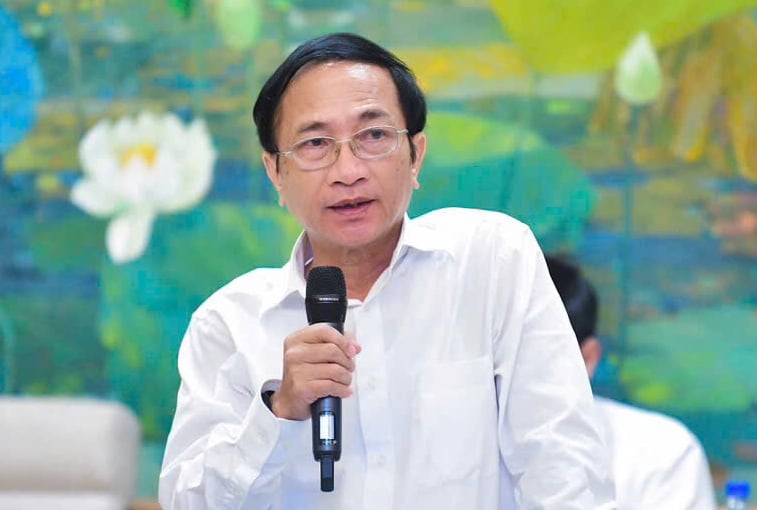From July 1, 2025, according to Circular 15/2025/TT-BGDDT, the People's Committees at the commune level are officially assigned to perform the function of state management of education in the area. However, according to feedback from many localities, while the task is getting heavier, the human resources in the commune have not changed. Some communes have to arrange education officers who are not pedagogical specialists, etc. This raises big questions about the effectiveness and efficiency of this institutional reform.

The reporter had an interview with Dr. Hoang Ngoc Vinh - Former Director of the Department of Vocational Education, Ministry of Education and Training on this issue.
In your opinion, what is the biggest bottleneck at present when transferring a series of educational tasks from the district level to the commune?
- In my opinion, if we keep the administrative model the same - that is, "mmigrating" the Department of Education to the commune - it will certainly be overloaded. The problem is not only the quantity of work, but also the quality of human resources and operation methods. There are many tasks, but the commune does not have its own educational staff, and lacks professional tools and digital platforms. When the delivery is not qualified, the matter will be complicated. Many communes had to "borrow" schools, but did not have a clear mechanism, causing overlapping and overlapping responsibilities. In my opinion, the bottleneck is not the number of tasks, but the thinking: Transfer tasks but do not change the organization, operation and management thinking.
So, in your opinion, how should we change the management model to adapt?
- It is necessary to move to the "school-based management" model - that is, giving the principal a real authority. That is, people who clearly understand the practical needs of their school, can proactively develop an educational plan, use the budget, manage small assets, organize professional activities, coordinate community education. The People's Committee of the commune should not "replace" but play the role of supervising, coordinating, and resource according to regulations. This is the way many countries have done: Focus on school governance, increase the proactiveness of local government schools in supporting and taking responsibility for the framework.
Even in the recruitment of teachers, many places currently assign the Department of Education and Training to organize, while schools are only allowed to report their staffing needs. However, the school does not have the right to choose, only the right to report the target needs is not really responsible for the quality of the team. Once the school does not have the main initiative in personnel management, how can it be held accountable if the quality of education is not achieved? As a result, the responsibility is dispersed, while the quality of education is not fully responsible. The problem here is that the Department of Education and Training is responsible for coordinating with the commune and schools to recruit and be able to coordinate the transfer of teachers in a reasonable and transparent manner in the province.
There are concerns that giving the school too much power will lead to a situation where "everyone can do it". What do you think about this issue?
- The concern is well-founded, but can be controlled. Empowerment does not mean laxity. The important thing is to come with a capacity framework for principals, a transparent reporting system, and a mechanism for professional supervision by cluster or commune education council. What the school can do, it has to let the school do, but there is control. On the contrary, if we do not give them power, we cannot demand responsibility. Between the " self-managed and supervised" model and the "asking - waiting - approving" model, I think the first model will be more efficient, flexible and more suitable to modern trends.
From the above concerns, what policy recommendations do you have?
- I propose that the Ministry of Education and Training soon issue a framework to guide the implementation of Circular 15 in the direction of clearly defining which tasks the commune performs, which tasks the school chairs, which tasks are coordinated. We cannot let the commune "take care of everything" and then return to "thank" the school for the work without regulations, causing both sides to confusion. In addition, it is advisable to pilot a school-based management model in some localities with favorable conditions, along with impact assessment and technical support. In particular, for community learning centers - where communes are assigned to directly manage - there needs to be a leader who is a full-time, professional cadre, not a part-time worker.
In short, it is impossible to transfer tasks without changing the model. If we only shift tasks in the form of "cutting" "attaching" administration, we are shaping a new institution" but with the old thinking, old tools and old methods of doing things. All institutional reforms must be associated with innovation in thinking and redesigning the way of organization and implementation.
- Thank you!











